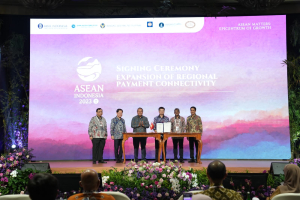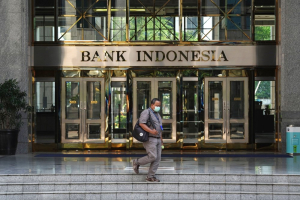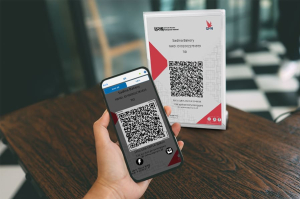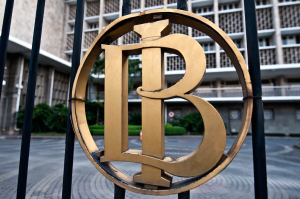Bank Indonesia plans digital rupiah trial in 2024 as part of national payment system development
Bank Indonesia (BI) is gearing up for a trial of its central bank digital currency, known as the digital rupiah, in 2024. The central bank intends to collaborate with large-scale financial institutions for this pilot, according to Deputy Governor Juda Agung. This initiative is highlighted as one of the five short-term focuses in the development of the national payment system.
"The development of digital Rupiah as the only legitimate digital payment tool in Indonesia. It will enter the proof-of-concept stage in 2024," stated Juda Agung.
During the proof-of-concept phase, BI will internally test the Digital Rupiah system, and its impact won't be felt by the public.
In the same context, Head of the Indonesian Payment System Policy Department at BI, Dicky Kartikoyono, explained that the proof-of-concept stage would involve major players in the financial industry.
In this process, the current savings accounts held by banks in BI will be converted into a digital format. Once the digital savings accounts are established, the digital rupiah system, utilizing blockchain or distributed ledger technology (DLT), will become operational.
"The current proof-of-concept stage will involve an industrial wild test with the participation of business entities. It's not too difficult from a logical standpoint, but, of course, the technology must be prepared in collaboration with all parties," noted Dicky.
Bank Indonesia's five key programs include the development of the BI Fast retail payment system with interconnected interoperability and integration with the National Payment Gateway (GPN).
- Development of the BI RTGS big-value payment system, which is modern, multicurrency, and follows international standards;
- Establishment of a transaction payment data center for innovative AI-based payment solutions;
- Utilization of AI for handling and preventing fraud, particularly in the context of rich data within the QR system;
- Development of the digital Rupiah as the sole legitimate digital payment instrument in Indonesia, entering the proof-of-concept stage in 2024;
- Expansion of cooperation between QRIS and BI Fast in ASEAN, extending to India, Japan, China, and the UAE.
Tag
Already have an account? Sign In
-
Start reading
Freemium
-
Monthly Subscription
30% OFF$26.03
$37.19/MonthCancel anytime
This offer is open to all new subscribers!
Subscribe now -
Yearly Subscription
33% OFF$228.13
$340.5/YearCancel anytime
This offer is open to all new subscribers!
Subscribe now






